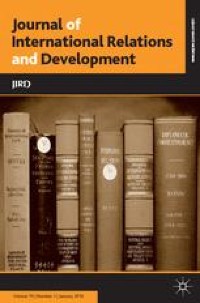- cross-posted to:
- socialism@lemmy.ml
- cross-posted to:
- socialism@lemmy.ml
As a former senior economist of the IMF once said:
Today I resigned from the staff of the International Monetary Fund after over twelve years, and after 1000 days of official Fund work in the field, hawking your medicine and your bag of tricks to governments and to peoples in Latin America and the Caribbean and Africa. To me resignation is a priceless liberation, for with it I have taken the first big step to that place where I may hope to wash my hands of what in my mind’s eye is the blood of millions of poor and starving peoples. Mr. Camdessus, the blood is so much, you know, it runs in rivers. It dries up too; it cakes all over me; sometimes I feel that there is not enough soap in the whole world to cleanse me from the things that I did do in your name and in the names of your predecessors, and under your official seal.
You know, when all the evidence is in, there are two types of questions that you and me and others like us will have to answer. The first is this: - will the world be content merely to brand our institution as among the most insidious enemies of humankind? Will our fellow men condemn us thus and let the matter rest? Or will the heirs of those whom we have dismembered in our own peculiar Holocaust clamor for another Nuremberg?
(Davison Budhoo’s IMF resignation letter. PDF, archive.org)
more quotes
As from today I refuse to accept the Fund-imposed censorship on our activities in the Third World. I have also stopped obeying your directive that reports and memoranda and other printed matter that document these activities be regarded as unexceptionally confidential and “hush-hush”.
In guilt and self-realization of my own worthlessness as a human being, what I would like to do most of all is to so propel myself that I can get the man-in-the- street of North and South and East and West and First and Second and Third and Fourth and All Other Worlds to take an interest in what is happening to his single planet, his single habitat, because our institution was allowed to evolve in a particular way in late twentieth- century international society, and allowed to become the supra- national authority that controls the day-to- day lives of hundreds of millions of people everywhere. More specifically, I would like to enlighten public opinion about our role and our operations in our member countries of the Third World.
I can get people to begin to comprehend the universality and the depth of our perversion - I would have achieved something rare and precious for the starving and dispossessed two-thirds of mankind from whose ranks I come, and for whose cause I must now fight.
Our policy package for Trinidad and Tobago-i.e. the conditionality that we are demanding for any Fund program […] can be shown, even in a half-objective analysis, to be self-defeating and unworkable. That policy package can never serve, under any set of circumstances, the cause of financial balance and economic growth. Rather, what, in effect, we are asking the Government of Trinidad and Tobago to do is to self-destruct itself and unleash unstoppable economic and social chaos.
We manipulated, blatantly and systematically, certain key statistical indices so as to put ourselves in a position where we could make very false pronouncements about economic and financial performance of that country. In doing so, we created a situation whereby the country was repeatedly denied access to international commercial and official sources of financing that otherwise would have been readily available. Our deliberate blocking of an economic lifeline to the country through subterfuge served to accentuate tremendously the internal and external financial imbalances within the economy
As the country continues to resist our Deadliest Medicine that would put it in a position to enter into a formal stand-by arrangement with us, we continue to resort to statistical malpractices and unabashed misinformation so as to bring it to heel. Among several misdeeds, we have influenced the World Bank, apparently against the better judgement of its own mission staff, to come out in support of our trumped-up policies and stances for the country
What we have done and are doing in Trinidad and Tobago is being repeated in scores of countries around the world, particularly in Latin America and the Caribbean and Africa. Sometimes we operate with greater restraint, sometimes with less, but the process and the result are always the same: a standard, pompous recital of doctrinaire Fund “advice” given uncompromisingly and often contemptuously and in utter disregard to local conditions and concerns and susceptibilities. It is the norm now rather than the exception, that when our “one-for-all and all-for-one” Fund cap doesn’t fit the head for which it is intended, we cut and shave and mangle the head so as to give the semblance of a fit. Maybe we bust up the head too much in Trinidad and Tobago, but have no illusions that the way we operate through- out the world - the narrow and irrelevant epistemology underlying our work, the airs and affectations and blases and illusions of superiority of our staff vis-Á-vis government officials and politicians in the developing world, our outrageous salaries and perks and diplomatic immunities and multiple “entitlements”, the ill-gotten, inadvertent power that we revel in wielding over prostrate governments and peoples- can only serve to accentuate world tensions, expand even further the already bulging ranks of the poverty-striken and destitute of the South, and stunt, worldwide, the human soul, and the human capacity for caring and upholding norms of justice and fairplay.
No surprises obviously but I had no clue “stabilisation reforms” were a thing:
stabilisation reforms and their disaggregated conditions appear to have limited impact on poverty. Although stabilisation policies including cutting government spending, raising interest rates, and repaying debts cause economic pain, the IMF sets broad targets on macroeconomic indicators linked to stabilisation reforms, providing the borrower more policy discretion relative to structural reforms
I had always only heard of structural reforms which mostly include removing government intervention and privatisation of public services which, to no one’s surprise, increase poverty and inequality.
I’m not quite sure what they mean by stabilisation reform, but at fist pass it seems to be just rearranging chairs on the austerity Titanic .
Seems to be similar to structural reforms just not as coercive.





